

СДЕЛАЙТЕ СВОИ УРОКИ ЕЩЁ ЭФФЕКТИВНЕЕ, А ЖИЗНЬ СВОБОДНЕЕ
Благодаря готовым учебным материалам для работы в классе и дистанционно
Скидки до 50 % на комплекты
только до
Готовые ключевые этапы урока всегда будут у вас под рукой
Организационный момент
Проверка знаний
Объяснение материала
Закрепление изученного
Итоги урока

Методические указания к разделу развивающего курса английского языка «ЧЕЛОВЕК, ЗДОРОВЬЕ»
Настоящие Методические указания предназначены для обучающихся и студентов 1 курса очного и заочного отделения всех профессий и специальностей ГАПОУ АО «АПТ». Они составлены в соответствии с рабочей программой учебной дисциплины ОУД.03 Иностранный (английский) язык.
Целью обучения английскому языку является подготовка обучающихся и студентов к общению на этом языке в устной и письменной формах, что предполагает наличие у них определенных знаний, умений и навыков, которые после окончания курса дадут им возможность:
- читать оригинальную литературу по специальности для получения необходимой информации;
- принимать участие в устном общении на английском языке в объеме материала, предусмотренного рабочей программой учебной дисциплины ОУД.03 Иностранный (английский) язык;
- приобрести навыки самостоятельной работы с иностранной литературой.
Просмотр содержимого документа
«Методические указания к разделу развивающего курса английского языка «ЧЕЛОВЕК, ЗДОРОВЬЕ»»
МИНИСТЕРСТВО ОБРАЗОВАНИЯ И НАУКИ АРХАНГЕЛЬСКОЙ ОБЛАСТИ
Государственное автономное профессиональное образовательное учреждение
Архангельской области
«Архангельский политехнический техникум»
(ГАПОУ АО «АПТ»)
МЕТОДИЧЕСКИЕ УКАЗАНИЯ
К РАЗДЕЛУ РАЗВИВАЮЩЕГО КУРСА
АНГЛИЙСКОГО ЯЗЫКА
«ЧЕЛОВЕК, ЗДОРОВЬЕ»
Архангельск 2020
Настоящие методические указания предназначены для студентов 1 курса всех профессий и специальностей ГАПОУ АО «АПТ» очной и заочной формы обучения для организации аудиторной и самостоятельной работы.
Методические указания состоят из тематических циклов, которые ориентированы на совершенствование знаний, умений и навыков.
Организация-разработчик: государственное автономное профессиональное образовательное учреждение Архангельской области «Архангельский политехнический техникум».
Разработчик:
Пантелеева Л. Г., преподаватель иностранного языка ГАПОУ АО «Архангельский политехнический техникум»
Рассмотрена и рекомендована к утверждению на заседании предметно-цикловой комиссии _______________________________________________.
Протокол заседания ПЦК № _____ от «_____»_____________ 20___ г.
Председатель ПЦК: _____________________ /Васильева Н.Г./.
ПРЕДИСЛОВИЕ 4
РАЗДЕЛ 7. ЧЕЛОВЕК, ЗДОРОВЬЕ 5
Тема 7.1. Man’s Health 5
Тема 7.2. Healthcare System in the UK and the USA 12
Тема 6.3. Healthcare System in Russia 18
ТЕМАТИЧЕСКИЕ ГЛОССАРИИ 21
Health 21
Healthcare System 24
СПИСОК РЕКОМЕНДУЕМЫХ ИСТОЧНИКОВ 29
Основные источники 29
Дополнительные источники 29
Интернет-ресурсы 29
Настоящие Методические указания предназначены для обучающихся и студентов 1 курса очного и заочного отделения всех профессий и специальностей ГАПОУ АО «АПТ». Они составлены в соответствии с рабочей программой учебной дисциплины ОУД.03 Иностранный (английский) язык.
Целью обучения английскому языку является подготовка обучающихся и студентов к общению на этом языке в устной и письменной формах, что предполагает наличие у них определенных знаний, умений и навыков, которые после окончания курса дадут им возможность:
- читать оригинальную литературу по специальности для получения необходимой информации;
- принимать участие в устном общении на английском языке в объеме материала, предусмотренного рабочей программой учебной дисциплины ОУД.03 Иностранный (английский) язык;
- приобрести навыки самостоятельной работы с иностранной литературой.
В процессе изучения английского языка реализуются также общеобразовательные и воспитательные задачи обучения.
Курс обучения английскому языку обучающихся и студентов ГАПОУ АО «АПТ» делится на два этапа: вводно-коррективный и развивающий курсы.
Методические указания включают в себя все темы развивающего курса, содержащие адаптированные тексты и диалоги, практические упражнения по его закреплению способствующих развитию и совершенствованию произносительных навыков.
Материал указаний может быть рекомендован для всех лиц, желающих повысить уровень владения английским языком.
1. Read the text and complete the outline with the components of human health mentioned in it.
Healthy Lifestyle: Important Rules for a Teenager
One of the most valuable things in our life is health but a lot of teenagers do not pay enough attention to a healthy lifestyle. However it is very important to take care of your body and everyone has to be concerned about it since childhood. The rules of healthy living are not very difficult to follow – the key feature is to understand that our bodies and minds do depend on the way we treat them. And we need to remember that taking care of our health today means a better hope for tomorrow.
It is not a secret that our bodies and minds are closely connected and we can enjoy our life when we are healthy both physically and mentally. Having some good time with family or friends, enjoying some pleasant time doing what we like means a lot for a healthy lifestyle. Being friendly and cheerful is one of the best promoters of health. And one more rule to remember is finding some time and attention for ourselves.
Moreover wellness and prevention are essential features to live long and healthy. Some useful habits will help us to enjoy all the colours of life. The first thing to be mentioned is the diet we follow. Having a healthy well-balanced diet is one of the main features of avoiding the long list of modern diseases such as obesity, diabetes, and hypertension. Our bodies need to get vitamins, minerals and nutrients regularly so the best way to feel and look well is eating enough fruit and vegetables and avoiding fast food.
The next important rule for being healthy is physical exertion. There are so many ways to feel the pleasures of being active – sports, dancing, or just walking. Regular exercising is a great way to be healthy and to enjoy life.
Besides being active our bodies need to have enough rest to refresh. Having enough sleep (8 -9 hours for a teenager) is really important. It seems impossible to observe this rule in our everyday busy life. But if we do not waste time on watching TV or surfing the Net we will definitely find some precious minutes or even hours for the rest our bodies need.
And last but not least rule for a teenager is avoiding bad habits and addictions that are offered by the modern life. Smoking, alcohol and drug addictions can not only destroy our bodies but, unfortunately, can ruin all the hopes for the future.
Taking care of our life today will open the benefits of the long healthy and happy life.

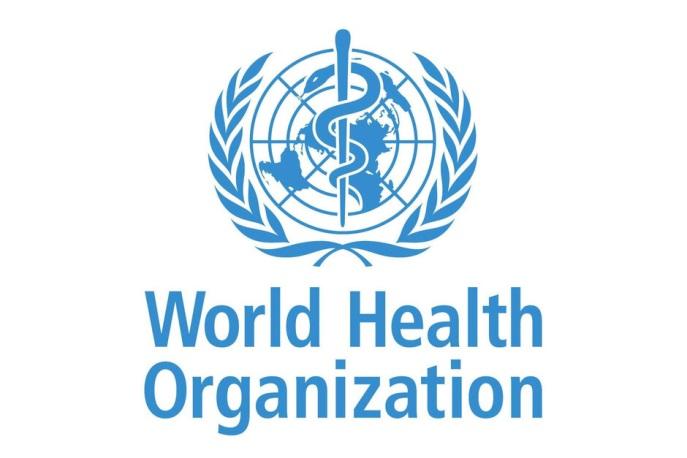 2. Visit the WHO (World Health Organization) website (https://www.who.int/ru/) and answer the questions:
2. Visit the WHO (World Health Organization) website (https://www.who.int/ru/) and answer the questions:
1. Which countries are the members of WHO?
2. What are the main lines of work of WHO?
3. What medical statistics are freely available on its website?
4. What is the role of WHO in global health education?
5. What is the role of WHO in preventing outbreaks of various diseases?
3. Visit the website of the WHO European Bureau and study the Health 2020 strategy (http://www.euro.who.int/en/health-topics/health-policy/health-2020-the-european-policy-for-health-and-well-being/about-health-2020). Make up 10 questions so that the answers to them will result in a re-presentation of the main points of the article.
4. Match the words and word-combinations with Russian equivalent.
| 1 | health | A | заботиться о здоровье |
| 2 | bad / poor health | B | хрупкое здоровье, ослабленный организм |
| 3 | good health | C | регулярные занятия |
| 4 | to be in bad / poor / ill health | D | иметь слабое здоровье |
| 5 | to enjoy good health | E | придерживаться диеты |
| 6 | to do exercises | F | упражняться |
| 7 | regular exercise | G | крепкое здоровье |
| 8 | not to take drugs | H | бегать трусцой |
| 9 | to jog in the morning | I | не принимать наркотики |
| 10 | to keep to a diet | J | придерживаться диеты быть в добром здравии |
| 11 | to keep fit | K | здоровье |
5. Put the word-combinations into the columns:
| We must | We must not |
|
|
|
|
|
|
Be healthy; smoke; wash hands; clean the house; eat too much; drink the alcohol; eat the snow; breathe in fresh air; go in for sport; eat fruit and vegetables; do morning exercises; eat too many sweets; go to bed late; keep our body clean; be sleepy; sleep eight hours; visit the doctor regularly; clean the teeth; feel fine; feel sick; have headache; have a bad cold; drink very cold water.
6. Read the text and fill out the chart about bad habits.
Bad Habits and the Ways to Combat them
There are no ideal people in this world. Each person has some negative traits of character as well as bad habits. But there are people, who try to combat them or those ones, who even do not notice their disadvantages. Bad habits are an indispensable part of each person, and even if one states that he does not have them, usually such people just try to avoid problems and forget about their drawbacks.
Bad habits refer to the patterns of negative behavior. They differ from the addiction because of the willpower presence and after a great job one can get rid of them. The earlier you start, the easier it will be to overcome it.. If such a habit can be controlled, it means it is not a bad one.
There are numerous kinds of bad habits many of which have appeared due to the development of technology. Nowadays scientists define such bad habits as alcohol consumption, smoking, swearing, biting fingernails, watching TV, social media addiction, eating too much fastfood, sweets or chocolate, addiction to video games, modern smartphones and iPads etc. All of them are contagious and difficult to overcome, as the temptations are everywhere in the contemporary world. Sometimes we have bad habits of boredom and stresses in our life, so the best way to eliminate them is to diversify your life. But sometimes the reason of the bad habit is much deeper, so be ready to be honest with yourself and realize what is hidden behind it.
Some of the bad habits are very dangerous. Regular intake of sedating medicines or alcohol may bring your organism to incurable diseases. Some bad habits in combination with driving or speeding can even result in death. Poor eyesight, problems with your back, bad teeth, diabetes or other problems are the main symptoms of your habit to be a bad one.
The problem of many bad habits is in doing “too much”. Overconsumption, too much time in front of the thing of your addiction can result in a bad habit. Remember, everything is available, but in small amounts (of course, except drugs). If you determine your limits, a bad habit will eventually turn into an ordinary one. Another disadvantage of such habits is their possibility to be expensive. Cigarettes and alcohol are put large taxes on, so it can cost you a fortune to have these habits, let alone drugs. Shopaholics destroy their budgets even without noticing it. Some bad habits might affect other people. The smoke of cigarettes influences badly on people surrounding the smoker. Many people have such troubles in the kitchen: leave the caps of the bottles, drink from the carton of milk never thinking about other dwellers, never clean up their messes etc.
There is also a theory that people can pick up habits from others, especially the bad ones. When you spend a lot of time with a definite person you can catch yourself on doing similar things. Whether it is eating or shopping, smoking or drinking, they affect you and you start doing the same things, get used to doing them and obtain a new bad habit. But of course, it does not mean you can’t avoid them, just stay strong and think about what you do.
One more interesting fact about bad habits involves your benefit from having it. Some researchers divide these benefits into physical and moral ones. For example, smoking or drugs can wake you up, social networks give you a chance to forget about everyday problems and swearing might change your position and influence in the society. To sum up, each bad habit addresses your certain need, so the best way out is to substitute these needs with something completely different. Do not just give it up, as your organism will lack something and it can make your life more difficult. It is the first piece of advice in the struggle against the bad habits. Another one is to cut out all possible triggers, as their presence won't let you resist the temptation. Avoid the things that cause them: hide a TV remote control, change the place of your rest or pass by the shop without entering it. The next step is to find a support. You can join forces with anyone, who can exactly understand your feelings and remind you of your decision each time you are ready to subside. One more hint is the change of your surrounding: choose only those people to get acquainted with or socialize, who will exactly agree with your new point of view. Prepare the word "but" for your conversations and inner talks to get more confidence and positive intentions. Do not be afraid of mistakes, they will bounce you higher and higher as the harder you throw, the higher a ball bounces. You may also find a penalty for yourself in case you violate your laws. It can be a good stimulus for quitting a bad habit.
One more aspect to be mentioned is a possible medical treatment of bad habits. Drug addiction and smoking are treated in different medical centers and very often medication can stop the addictive behavior.
In conclusion I must say that bad habits are a characteristic of each person, but the fewer of them we have, the easier our life is.
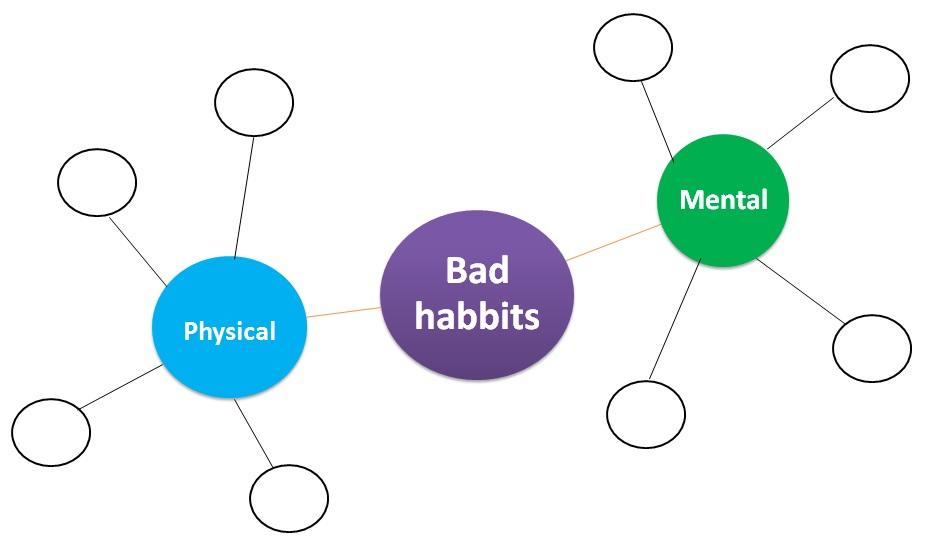
8. Smoking is usually called a “bad habit”, although by the mechanism of occurrence of this addiction, it must be attributed to the same serious diseases as drug addiction and alcoholism. Examine WHO data for tobacco use (http://www.euro.who.int/en/health-topics/disease-prevention/tobacco) and evaluate the smoking cessation guidelines this organization offers.

Answer the following questions:
1. What is the mechanism of craving for smoking?
2. Do you smoke? Why?
3. If yes, have you ever tried to quit?
4. Was it successfully? If not, why?
5. Are the measures proposed by WHO effective in your opinion? Why?
9. Free sexual relations are often included in the category of something like “bad habits”. It is important to say that any person has the right to satisfy his sex needs in any way that does not contradict the law and moral standards of the state in which he lives. However, the freedom that was given to man by the 20th century on this issue also implies a serious responsibility of each of us to our sexual partner, whether it is one-night acquaintance or a long relationship.
This responsibility covers a lot of things, but here are three main ones: sexual integrity, preventing the spread of STDs and reproductive health.
Sexual integrity implies the possibility of sexual relations with another person only if he has reached the age of majority or age of consent, and only with his permission and when he is fully conscious. It would seem a simple thought, but, for example, in Russian culture this causes a lot of controversy. It is widely believed that if your partner was drunk and asked for sex, then it is normal to have sexual intercourse with him or her. Or if at first the woman gave her consent, but in the process changed her mind not to listen to her, because "a woman’s no is yes" etc.
Watch this video (https://www.youtube.com/watch?v=oQbei5JGiT8), which, albeit in a humorous manner, but clearly demonstrates the abnormality of such an attitude, and make a list of rules that could be used by any person who wants to enter into an intimate relationship with someone.
In modern European society, men and women lead a free sexual life, often having several sexual partners before marriage. In this situation, the responsibility for health comes to the fore: your own and your partner’s. We are talking about the “plague of the 20th century” – HIV and AIDS.
Recently, Yuri Dud’ released a documentary about the HIV epidemic in Russia. Immediately after the release of the film, a flurry of criticism fell on it from the authorities. The accusations sounded very different: the disease statistics are distorted, the film propagandizes loose behavior, etc. But the truth is that HIV and AIDS have long been no longer a disease of homosexuals and drug addicts, this applies to completely traditional heterosexual couples. The level of the disease in Russia is comparable to that in some African countries. Watch the film (https://www.youtube.com/watch?v=GTRAEpllGZo), study the WHO data (http://www.euro.who.int/en/health-topics/communicable-diseases/hivaids) and draw a poster that would reflect the measures for the prevention of this disease.
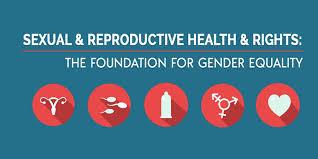
The main measure to prevent the spread of HIV and STDs is condom protection. A condom is also an effective way to plan your pregnancy. The reproductive policy of both the individual and the family is very important for two reasons: overpopulation of the planet, which entails a shortage of food resources and drinking water, and the personal right of every woman to decide whether she wants to be a mother. And if the first reason seems relevant for overpopulated regions like China or India, the second applies to the European society, in which, despite the obvious progress in protecting human rights, there is reproductive pressure and, in some cases, violence. This is extremely true for our country.
If we compare the likelihood of a woman dying during childbirth in the newly independent states of the former USSR and in the European Union, then in the first case it is more than four times higher. In some countries, unsafe abortion accounts for more than 20% of all reported cases of maternal mortality, and in Eastern Europe there is the highest abortion rate in the world. Many people still lack information on issues such as sexuality, family planning, pregnancy and childbirth, sexually transmitted infections, infertility, cervical cancer prevention, menopause.
WHO proclaims that men and women should have access to safe, effective, affordable birth control methods of their choice, as well as adequate quality health care services that allow women to safely pass through pregnancy and childbirth and provide married couples have the best chance of having healthy babies.
Examine the section of the WHO website on sexual and reproductive health of a person (http://www.euro.who.int/en/health-topics/Life-stages/sexual-and-reproductive-health/sexual-and-reproductive-health) and compile a table that reflects the main pros and cons of various contraceptive methods and methods and serves as a convenient reminder for your friends.
1. Read the text and do some exercises.
UK Health Service
The National Health Service provides free treatment for people living in Britain and gives emergency treatment for visitors. The greater part of the cost is met from taxes taken from people’s wages. People also pay some money every month as a sort of insurance.
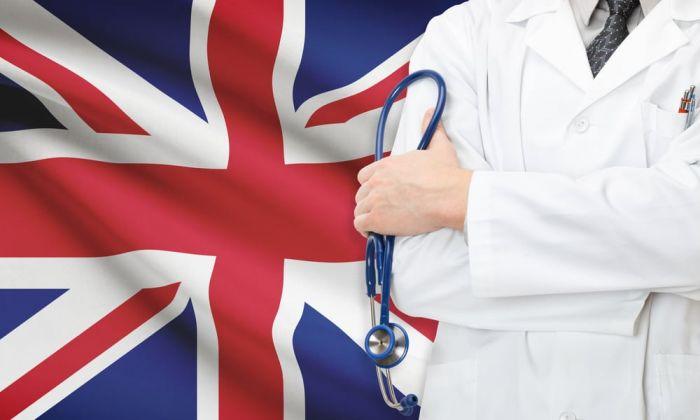 The National Health Service consists of three main parts: the general practitioners, the hospital and specialist services, and local health authority services. Local health authorities are responsible for medical education, hospital building, environmental health, vaccination service and so on.
The National Health Service consists of three main parts: the general practitioners, the hospital and specialist services, and local health authority services. Local health authorities are responsible for medical education, hospital building, environmental health, vaccination service and so on.
The centre of National Health Service is the general practitioner (GP). Each person is registered with a certain doctor in his or her area. The GP diagnoses, gives medical certificates, prescribes medicines. Dentists and opticians usually have separate clinics. They are not parts of health centres.
There is also a medium-level hospital staff. District nurses give injections, physiotherapy exercises at people’s homes. Ward nurses take care of the ill in the hospital.
Regular medical inspections are held at schools. Children receive various vaccinations and are examined by different specialists. There also exists a school dental service in every school.
Much attention is paid to the educational programmes. The Department of Health provides anti-smoking education programmes, alcohol education programmes, cancer prevention programmes and so on. Much attention is paid to the AIDS and drug programmes.
Great Britain pays much attention to the qualification of doctors. They are trained at 16 universities. Besides, they get practice during their work at teaching hospitals.
a) Based on what you’ve read and the Wikipedia article (https://en.wikipedia.org/wiki/National_Health_Service), draw up a diagram describing the UK healthcare system.

TAXES


NHS






…
…
…
……..
b) Read the interview of Lenta.ru with former NHS director Chris Bourne (https://lenta.ru/articles/2020/02/12/nhs/). Fill in the following table (in English!):
| “+” | “--” |
| … | … |
| … | … |
2. As you learned from the text above, the general practitioner plays a major role in getting primary health care in the UK (as well as some Commonwealth countries and the US). For Russia, this is a novelty, we are used to resorting to the services of a therapist, and it often seems to us that these two doctors are doing the same thing. Read two Wikipedia articles (https://en.wikipedia.org/wiki/General_practitioner; https://en.wikipedia.org/wiki/Internal_medicine) and make a table or diagram showing the main similarities and differences between them.
3. Study “Health System” vocabulary and do some exercises below.
a) Match English phrases in this dialog with their Russian translation:
| 1 | A: Hello! What seems to be the problem? | А | А: Хорошо, вот ваш рецепт. Вам следует наносить мазь три раза в день. |
| 2 | B: Hello! I have a nagging pain in my left arm and my wrist is swollen. | B | А: Ну, это не перелом. Вы всего лишь растянули запястье. |
| 3 | A: When did the symptoms start? | C | В: Нет. |
| 4 | B: About two hours ago and it still hurts. | D | А: Ладно, я хочу отправить вас на рентген. |
| 5 | A: Can I have a look? Please, roll up your sleeve. Does it hurt when I press here? | E | В: Хорошо, что вы мне посоветуете? Не могли бы вы выписать мне что-нибудь? |
| 6 | B: Yes, it hurts. | F | В: Спасибо большое! |
| 7 | A: Well, I want to send you for an X-ray. | G | А: Могу я взглянуть? Пожалуйста, закатайте рукав. Вам больно, когда я сюда нажимаю? |
| 8 | B: OK. | H | В: Да, больно. |
| 9 | A: Well, it’s not a fracture. You have only sprained your wrist. | I | В: Около двух часов назад и до сих пор болит. |
| 10 | B: Ok, what are your recommendations? Could you prescribe something? | J | А: Я собираюсь наложить повязку и выписать вам противовоспалительную мазь. У вас есть аллергия на что-нибудь? |
| 11 | A: I’m going to apply a bandage and prescribe you some anti-inflammatory ointment. Do you have any allergies? | K | А: Когда симптомы впервые появились? |
| 12 | B: No, I don’t. | L | В: Хорошо. |
| 13 | A: OK, here is your prescription. You should apply your ointment three times a day. | M | В: Здравствуйте! У меня ноющая боль в левой руке, и мое запястье отекло. |
| 14 | B: Thank you very much! | N | А: Здравствуйте! Что вас беспокоит? |
| 15 | A: You are welcome! | O | А: Пожалуйста! |
b) Put the phrases in the correct order to make a dialogue:
|
| A: When did you notice the symptoms? When did the symptoms start? |
|
| B: I’m taking aspirin. |
|
| B: About two days ago and it still hurts. |
|
| A: Did you take any medicine? |
|
| B: Month ago. |
|
| A: How long did the symptoms last? For how long have you been feeling ill? |
|
| B: Only at night. |
|
| A: When do you have the symptoms? |
с) Using these dialogues as examples and the phrases in the glossary, make your own short dialogues about a doctor’s appointment.
4. Read the dialogue below. There is a question there that would never have been asked in a British or Russian clinic. Guess which country is mentioned in the dialog. Why did you decide so?
A: Hello! I would like to make an appointment with a doctor, please.
B: Hello! Do you need urgent care? What seems to be the problem?
A: Yes, I do. I have a terrible pain in my left arm and my wrist is swollen.
B: Do you have private medical insurance?
A: Yes, I do.
B: Ok, I can fit you in today at 3 p. m. Does that suit you?
A: That’s great, thank you.
B: Ok, I will write you in for today at 3 p. m.
A: Thank you for your help!
5. Read the text and the Wikipedia article (https://en.wikipedia.org/wiki/Health_care_in_the_United_States) and do some exercises below.
Healthcare in the USA
Each American wants to have a good health. Everybody knows that Americans are a very healthy nation. They do not only do many sport activities, but also consult a physician in time.
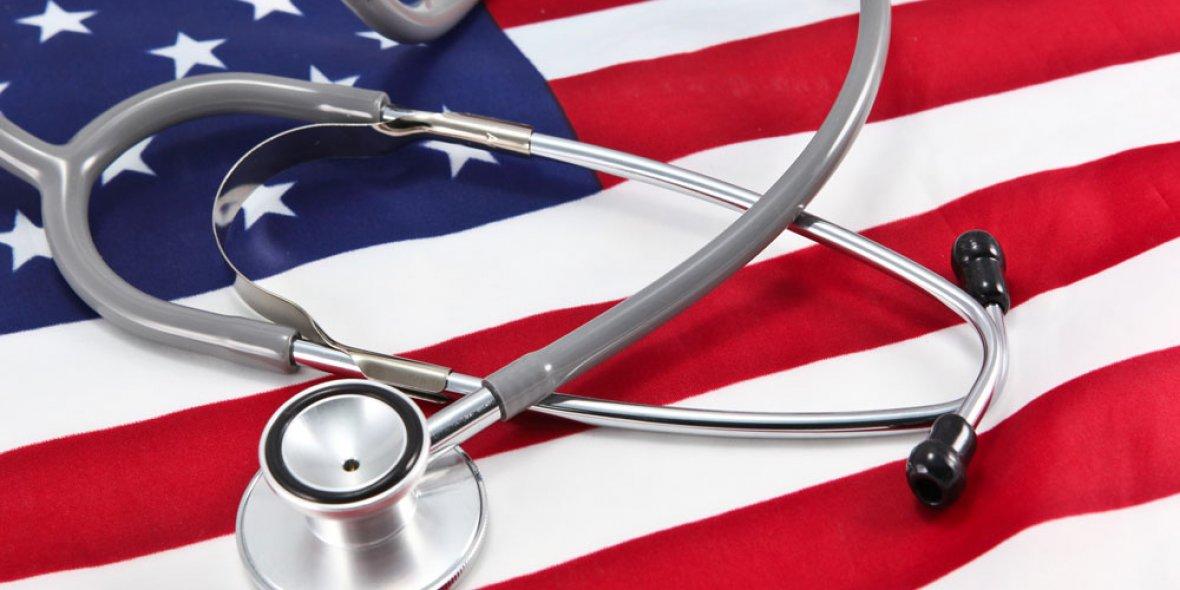 No matter if they have a splitting headache, a sore throat, backache or pain in the stomach, they always call a doctor in order to avoid serious consequences. The doctor usually prescribes medicine and puts on medication.
No matter if they have a splitting headache, a sore throat, backache or pain in the stomach, they always call a doctor in order to avoid serious consequences. The doctor usually prescribes medicine and puts on medication.
The USA has a health care system of high quality. You should be aware that the majority of medical institutions belong to businesses and different organizations in the private sector, and the American nation owns only a fifth of American hospitals.
Medical insurance in the USA comes from different sources such as social insurance, private insurance and social welfare that is funded by the government. Some state organizations offer free health insurance and some health care centers charge fees for treatment. The costs can be high, if medical centers are equipped with modern equipment and give high-quality medical services to all people.
Americans need to get high-quality health care services, and the USA do provides a strong health system.
a) Here are some facts and some people’s opinion about medical care service in the USA. Which of the following statements are facts and which are opinions?
I think that in many ways it’s a wonderful system but in many other ways it’s a catastrophe.
The USA is one of the most developed countries in the world but it doesn’t provide healthcare for all.
|
|
|
|
Medical care is not free but many hospitals provide some free or low-cost care for those who can’t pay.
The USA has no public healthcare service so most people have private health insurance.
America with its private insurance-based system spends 14 % of GDP on health. Britain with its popular state-funded NHS spends only 7 %.
There are people who receive medical care through social programmes. They are Medicare, which is intended for people over 65 and the disabled, and Medicaid, which is available for the poor.
They say that when the world’s rich want the best treatment money can buy they usually go to the USA. Small wonder, most new medical techniques and technologies become available in America before anywhere else.
Self-employed private physicians receive a fee for each patient’s visit but some medical doctors are on a salary.
b) Discuss in pairs or groups.
Exchange your opinions on the matter
| 1 |
| 2 |
| I’d rather pay a lot of money for insurance, but I will receive high-quality medical care from highly qualified specialists. |
| I will wait for medical assistance for months and will not be sure of its quality, but I will receive it for free. |
6. Read the snippets that describe a piece of the reality of the US health care system. Match them with posters of famous TV series about doctors.
| 1 | America is renowned for its highly trained medical professionals. The selection for the profession of a doctor begins at school, because you have to get high scores in the final exams in order to pass an incredibly high competition at the medical school. The training itself is very expensive. In addition, the study load for a medical student is much higher than for a typical student. In internship it grows even more, especially when it comes to the specialty of a surgeon. The competition among interns is unusually high, because the places for residency are even less than for internships. You must not only master the practical skills, but also constantly deepen the theoretical ones in order to impress your mentor and successfully pass the final test. But despite all this, the interns have time for a stormy personal life, which often involves the doctors of the clinic where they are trained. | A |
|
| 2 | The GP must have a vast range of knowledge, much more than the therapist. In exceptional cases, such doctors become world-renowned diagnosticians. Differential diagnosis implies a close examination of diseases with similar symptoms, which ultimately should lead to the setting of the only probable diagnosis. In this process, the doctor and the patient should act as equal partners, but this often does not happen, because patients withhold from the doctor part of the information about their lives, believing that it is not important for the diagnosis. As the main character of the series says, "Everybody lies!" He is generally very rude and straightforward with patients and their relatives (his second favorite phrase is "The patient is an idiot"), but at the same time he copes with his duties brilliantly. With all his behavior, he raises an interesting problem: what is more important: when the doctor is polite to you, but can do nothing to help you, or when he is rude, but can save your life. | B |
|
| 3 | The work of doctors in an American clinic is very intense: they, for example, not only carry out planned and unscheduled operations, but also receive patients (in America there are no polyclinics we are used to). Doctor shifts often last 72 hours. Salvation in such a situation can be humor. This series is a mixture of drama and comedy (like life itself), but, of course, the second component prevails in it. In a sense, this is just a series about young (and not so young people) who work, relax, fall in love, break up, have children and do other things that make up the life of most of us. There is little evidence of medicine itself, but a lot of ethical issues related to it are raised. And, of course, this is a storehouse of very bright and memorable quotes (to be honest, each episode is one big bright memorable quote). And the soundtrack for the series is awesome. | C |
|
1. Read the text and do some exercises below.
Health Care in Russia
Health care in Russia, both preventive and curative, is available to the whole population. The most distinctive feature of it is the attention paid to prophylaxis. One of the main tasks in the fight against various diseases is the early detection of the first signs of disease. We pay much attention to the health education of the population. We believe that is one of the main available methods of preventing the spread of diseases. For this purpose the press, cinema, radio and television are very helpful.
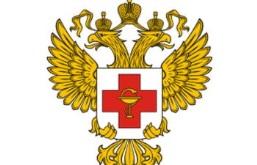 The basic medical unit in our country is the polyclinic. Polyclinics are large medical centres employing many doctors and nurses. Polyclinics have their own laboratories and X-ray, physiotherapy, surgical and dental departments. We have polyclinics for the adult population and for children. Ambulant patients are seen at the polyclinic by district doctors. Patients who are seriously ill are visited by their district doctor at home. The doctor works 6 hours a day. For the district doctor this is made up of 3 hours seeing patients at the polyclinic and 3 hours in visiting patients in their homes.
The basic medical unit in our country is the polyclinic. Polyclinics are large medical centres employing many doctors and nurses. Polyclinics have their own laboratories and X-ray, physiotherapy, surgical and dental departments. We have polyclinics for the adult population and for children. Ambulant patients are seen at the polyclinic by district doctors. Patients who are seriously ill are visited by their district doctor at home. The doctor works 6 hours a day. For the district doctor this is made up of 3 hours seeing patients at the polyclinic and 3 hours in visiting patients in their homes.
The emergency ambulance service operates day and night and is free of charge. The ambulances are equipped with diagnostic, respiratory and anaesthetic apparatus, as well as blood-transfusion and other devices, which enable the doctor to give emergency surgical and medical treatment.
There are several specialised hospitals in Russia for the treatment of particular diseases – infectious and psychiatric diseases, cancer and ophthalmological diseases and others. The Mother-and-Child Health Care Centre is in Moscow. This Centre deals with not only routine problems of obstetrics and gynaecology but also with research in the normal physiology of a female organism starting from an early stage of development. The main task of this centre is to ensure the birth of a healthy child.
At present, there have emerged a number of private diagnostic and consultation centres, general hospitals and specialised clinics. Medical and health care is provided in line with compulsory and voluntary medical insurance programmes set up by the state via private insurance companies.
a) Answer the questions:
1. What is the characteristic feature of health care in Russia?
2. What is helpful in heath education?
3. Where is the primary medical care provided?
4. What do you know about the work of a district doctor?
5. Is the emergency ambulance service free of charge or fee-paying?
6. What can you say about its equipment?
7. Are there many specialised hospitals in Russia?
8. What are the problems studied by the Mother-and-Child Health Care Centre in Moscow?
9. Are there any private medical centres in our country?
10. What is medical and health care provided with?
b) What can you say about the healthcare service in Russia from your own experience? You may use the following structures:
|
Although Russia has a public healthcare service we have a private sector too.
|
| the work of the public health service
|
the shortage of money |
|
|
cooperation with the private sector |
| central organisation of the healthcare system
|
compulsory medical insurance |
| the quality of the private healthcare system
|
high cost |
| the quality of the public healthcare system
|
free of charge treatment |
| physicians who get a fee for each patient’s visit |
physicians on a salary |
2. Watch the videos about British (https://www.youtube.com/watch?v=4dPgN_ArPBE&app=desktop) and American (https://www.youtube.com/watch?v=lIoNxwe_Xvk) healthcare systems. Make your one about medical care in Russia.
3. Read the text below. What factual inaccuracies were made when describing a visit to a doctor in Russia?
At the Doctor’s
If we caught cold, have a splitting headache, have a clogged nose, cough, are running high temperature, we must go to the policlinic. First, we come to the registry. The registry clerk on a duty asks our name, address, age and occupation. He writes out some slips because several specialists will examine us. Some of them will listen to our heart and lungs, some will check up our kidneys, liver, stomach, eyesight, and hearing. The others will make our blood analysis, take our blood pressure and x-ray us.
Our district doctor sees his patients in consulting room. A nurse gives us a thermometer to take our temperature. We must keep it under an armpit. Last time my temperature was 37,9. The doctor asked what my trouble was. He offered to sit down in a chair and to strip to the waist. He felt my pulse. It was faint and accelerated. Then I lay on the examination couch and the doctor palpated my abdomen. He asked me from what disease I suffered in my childhood. I suffered from scarlet fever. Now I felt dizzy and was damp with sweat. The doctor filled in my card and diagnosed the case as the flu.
Then he wrote out a prescription for some medicines: pills, powder, drops, and mixture. He also advised me to take a scalding footbath, to put a hot water bottle to my feet, to have hot tea with raspberry jam. That would keep my fever down. The result of my x-ray examination and blood analysis was normal. I had the prescription made at the chemist’s. I followed the prescribed treatment to avoid complications. Every day I took a tablespoonful of mixture 3 times a day and some pills. In two days I was better and in a week I recovered from my illness. I began to take care of myself. Now I go in for sports because sports make me strong, healthy and cheerful. Every day I do my morning exercises and have a cold rubdown to prevent myself from catching cold. There is a good proverb: An apple a day keeps doctor away. That’s why I eat a lot of fruits and vegetables.
In case of sudden and severe illness or an accident calls are made to the first aid station. There the doctors are on duty all day long. There are many ambulances there. The ambulances are equipped with everything necessary to give the first aid. The patient is transported to hospital. There he is taken to the reception ward first. After questioning and examination the doctor fills in the patient’s case history. Then a patient is given special clothes and is put to some ward for treatment. The doctors make their daily round there. They examine patients and prescribe different medicines and treatments.
When a patient is completely cured, he is discharged from the hospital. There are different departments in the hospital. They are: a surgical department, therapy, and the department of infectious diseases.
4. Discuss in pairs or groups.
Exchange your opinions on the matter

| 1 |
| 2 |
| there are a lot of disadvantages in Russian healthcare system |
| in spite of all this disadvantages there are a lot of positive moments |
Organism
| skull – череп spinal / vertebral column / spine / backbone – позвоночник collar bone – ключица sternum / breastbone – грудина chest – грудная клетка rib – ребро scapula / shoulder-blade – лопатка pelvis – таз muscle – мышца brain – мозг spinal cord – спинной мозг nerve – нерв thyroid gland – щитовидная железа nasopharynx – носоглотка trachea – трахея bronchus / bronchial tube – бронхи lung – легкое gullet / oesophagus – пищевод stomach – желудок intestines / bowel (мн. ч.) – кишечник small intestine / bowel – тонкий кишечник duodenum – двенадцатиперстная кишка | large intestine / bowel – толстый кишечник straight intestine / rectum – прямая кишка liver – печень gall-bladder – желчный пузырь pancreas / pancreatic gland – поджелудочная железа heart – сердце (blood) vessels – сосуды vine – вена artery – артерия capillary – капилляр lymphatic apparatus / system – лимфатическая система lymph(atic) gland – лимфатический узел marrow – костный мозг uterus / womb – матка ovary – яичник testicle / testis (мн. ч. testes) – семенник prostate (gland) – простата kidney – почка (urine) blade – мочевой пузырь ureter – мочеточники |
Diseases / Injuries
| illness / sickness / disease – болезнь contagious – заразная curable – излечимая incurable – неизлечимая fatal, deadly – смертельная chronic – хроническая ill, sick, diseased – больной chest pain – боль в груди stomachache – боль в животе backache – боль в спине earache – боль в ухе headache – головная боль toothache – зубная боль | to fall ill (with) / to be taken ill (with) / to be down (with) – заболевать, заболеть to cut oneself – порезаться to catch / take (a) cold / chill – простудиться asthma – астма allergic reaction / allergy – аллергическая реакция / аллергия arthritis – артрит bleeding – кровотечение nosebleed – кровотечение из носа miscarriage – выкидыш |
| infection – инфекция rabies – бешенство typhoid fever – брюшной тиф chicken pox, chickenpox – ветрянка hepatitis – гепатит herpes – герпес flu, influenza – грипп diarrhea – диарея dysentery – дизентерия diphtheria – дифтерия yellow fever – желтая лихорадка jaundice – желтуха whooping cough – коклюш conjunctivitis – конъюнктивит measles – корь glandular fever / kissing disease – мононуклеоз инфекционный malaria – малярия meningitis – менингит (tick-borne) encephalitis – энцефалит eczema – экзема plague – чума scabies – чесотка cholera – холера tuberculosis – туберкулез toxoplasmosis – токсоплазмоз tetanus – столбняк scarlet fever – скарлатина mumps – свинка polio – полиомиелит peritonitis – перитонит STI (sexually transmitted infection) – венерическая инфекция HIV (human immunodeficiency virus) – ВИЧ AIDS (acquired immunodeficiency syndrome) – СПИД inflammation – воспаление pneumonia – пневмония tonsillitis, inflammation of the tonsils – тонзиллит, воспаление миндалин quinsy, sore throat – ангина appendicitis – аппендицит bronchitis – бронхит ailment / malaise – недомогание amnesia / memory loss – амнезия, потеря памяти sclerosis – склероз multiple sclerosis (MS) – рассеянный склероз stress – стресс fit, attack – припадок fit / attack of nerves, nervous fit – нервный припадок senile dementia – старческое слабоумие brain concussion – сотрясение мозга eating disorder – расстройство питания epilepsy – эпилепсия schizophrenia – шизофрения paralysis – паралич depression – депрессия injury – телесное повреждение to break one’s leg / arm – сломать ногу / руку broken bone / arm / leg – сломанная кость / рука / нога fracture – перелом | indigestion / stomach upset – несварение food poisoning – пищевое отравление faint / fainting fit – обморок (head) cold / cold in the head / running nose – насморк cough – кашель giddiness / dizziness / vertigo – головокружение fatigue – усталость nausea – чувство тошноты constipation – запор heartburn – изжога chronic / long-term illness – хроническое заболевание heart disease – болезнь сердца infarction / heart attack – инфаркт high blood pressure / hypertension – гипертония, высокое кровяное давление low blood pressure / hypotension – гипотония, низкое кровяное давление angina – стенокардия, грудная жаба gastritis – гастрит haemophilia –гемофилия haemorrhoids / piles – геморрой deafness – глухота fungus – грибок hernia / rupture – грыжа diabetes / blood disorder – диабет obesity – ожирение gastric ulcer, stomach ulcer – язва желудка dyslexia – дислексия leukemia, leucosis – лейкемия, лейкоз cancer – рак swelling, tumor – опухоль gout – подагра rheumatism – ревматизм insomnia – бессонница Alzheimer’s disease – болезнь Альцгеймера migraine – мигрень stroke / apoplexy / cerebrovascular accident – инсульт cut – порез sprain – растяжение связок hypothermia / exposure to cold – гипотермия, переохлаждение frostbite – обморожение dehydration – обезвоживание heat stroke – тепловой удар sunstroke – солнечный удар sunburn – солнечный ожог mountain / altitude sickness – горная болезнь wart – бородавка splinter – заноза callus / corn – мозоль abscess / boil – нарыв, гнойник, абсцесс bruise – синяк scar – шрам ulcer – язва acne – угорь spot, pimple – прыщ swelling, bump – шишка, опухоль rash, (skin) eruption – сыпь |
Doctors
| physician / GP (general practitioner) – терапевт paediatrist / children’s doctor – педиатр allergist – аллерголог dermatologist –дерматолог surgeon – хирург ophthalmologist / oculist – офтальмолог, окулист otolaryngologist / otorhinolaryngologist / Ear-Nose-Throat / ENT specialist – отоларинголог cardiologist – кардиолог | psychiatrists –психиатр neuropathologist – невропатолог gastroenterologist / GHE – гастроэнтеролог urinologist / urologist – уролог gynaecologist – гинеколог dentist – дантист medical assistant / physician’s assistant / doctor’s assistant – фельдшер paramedic – фельдшер на «скорой» nurse – медсестра, медбрат |
Phrases
I need a doctor. – Мне нужен врач.
Please, get me a doctor. – Пожалуйста, вызовите мне врача.
Is it urgent? – Это срочно?
Do you have private medical insurance? – У вас есть медицинская страховка?
What’s the problem? / What’s the matter? / What do you complain of? – В чем проблема? / Что случилось? / На что жалуетесь?
Which day and what time is good for you? – В какой день и в какое время вам удобно?
I would like to make an appointment with Dr. House, please. – Я бы хотел назначить встречу с доктором Хаусом.
When will the doctor be free? – Когда врач будет свободен?
I’d like to see Dr. House on Monday. - Я бы хотел назначить встречу с доктором Хаусом в понедельник.
Please, call an ambulanceю – Пожалуйста, вызовите скорую помощь.
I need an ambulance. – Мне нужна скорая помощь.
Symptoms / complaints / recommendations
| complaints – жалобы illness – болезнь (внутренних органов, непродолжительная) disease – тяжелая / хроническая / смертельная болезнь an ache – боль (ноющая, продолжительная, «тупая») to ache – болеть (долго, но выносимо длительное время) dull ache – тупая боль, ноющая боль persistent ache – постоянная боль, стойкая боль steady ache – непрекращающаяся боль; cause pain – причинять, вызывать боль bear / endure / stand / take pain – сносить, терпеть боль cry out with pain – вскрикнуть от боли a sore – рана, язва, нарыв sore (прил.) – воспаленный, чувствительный (в обоих случаях речь идет о поверхностном воспалении) a hurt – повреждение to hurt – нанести повреждение в виде ушиба, раны painful – болезненный (когда повреждение или ранение не было преднамеренным). hurtful – вредный, губительный, пагубный, обидный (о преднамеренно совершенной боли) complication of the disease – осложнение болезни symptoms – симптомы to start / begin to cry, to start crying – начать плакать to suffer (from) – страдать (от) to feel well / good – чувствовать себя хорошо | begin to ache – заболевать; разныться ache on and off / ache now and then – побаливать a pain – боль (острая и невыносимая боль в результате болезни или полученного увечья) to pain – болеть (остро,невыносимо) cutting pain – резкая боль burning pain – жгучая боль intense pain – жгучая боль a dart of pain – приступ резкой боли doubled up with pain – скрючившийся от боли stab of pain – внезапная, острая боль |
| to be fit / in good shape – быть в хорошей форме health – здоровье healthy – здоровый pale / pallid – бледный to faint / to swoon – падать, упасть в обморок weak, feeble – слабый sweat, perspiration – пот to sweat – потеть sickness – тошнота temperature, fever – температура pulse – пульс breathe – дыхание to breathe – дышать cramp / convulsion / spasm – спазм, судорога recommendations – рекомендации to consult a doctor – консультироваться с врачом to give up smoking, to stop / quit smoking – бросить курить to (have a) rest – отдохнуть rehabilitation – реабилитация sick leave – больничный (отпуск по болезни) to recover – выздороветь |
Phrases
Complaints
I am not feeling well. – Я болен.
I feel ill. – Я болен.
I feel sick. – Меня тошнит.
I feel dizzy. – У меня кружится голова.
I’ve cut myself. - Я порезался.
I have: У меня:
a high temperature. высокая температура.
a headache/earache. головная боль / боль в ушах.
a pain in my arm/neck/chest. боль в руке/шее/груди.
a swollen ankle/arm/knee. опухшая лодыжка/рука/колено.
a sprained wrist/ankle. растянутое запястье/лодыжка.
My back is hurting. / My back hurts. – Моя спина болит.
It hurts here. – У меня болит вот здесь. (универсальная фраза, если вы забыли название части тела).
I got hit with... – Меня ударили...
Examination
Where’s the pain? – Где болит?
How long have you been feeling like this? / When did it start? – Как долго вы себя так чувствуете? / Когда это началось?
Is this the first time this has happened? – С вами такое впервые?
What seemed to make the symptoms worse? – Как вам кажется, что ухудшает ваше состояние?
Have you got any other symptoms? – У вас есть какие-нибудь другие симптомы?
What have you eaten / drunk? – Что вы ели / пили?
What infectious diseases have you had? – Какими инфекционными заболеваниями вы болели?
Have you taken your temperature? – Вы мерили температуру?
Have you been taking anything for it? – Вы принимали что-нибудь от этого?
Can I have a look? – Могу я взглянуть?
Does it hurt when I press here? – Вам больно, когда я сюда нажимаю?
Could you roll up your sleeve? – Не могли бы вы закатать рукав?
I’m going to take your blood pressure/temperature/pulse. – Я собираюсь померить вам давление/температуру/пульс.
Your blood pressure is low / normal / rather high / very high. – Ваше давление низкое / нормальное / довольно высокое / очень высокое.
Your temperature is normal / a little high / very high. – Ваша температура нормальная / повышенная / очень высокая.
Open your mouth, please. – Откройте рот, пожалуйста.
Cough, please. – Покашляйте, пожалуйста.
Take a deep breath, please. – Сделайте глубокий вдох, пожалуйста.
Breathe out. – Выдохните.
Don’t breathe. – Не дышите.
Take your clothes off. – Раздевайтесь.
Lay down over here. – Ложитесь сюда, пожалуйста.
We’ll take an X-ray of your foot / chest / stomach. - Мы сделаем рентген ступни / грудной клетки / желудка.
We’ll do some lab tests. – Мы сделаем лабораторные анализы.
You need to have a blood test. – Вам нужно сделать анализ крови.
I want you to see a specialist. – Я хочу, чтобы вы показались специалисту.
We need to take a urine sample / blood sample. – Нам нужно взять анализ крови / мочи.
You need a few stitches. – Вам нужно наложить швы.
I want to send you for an X-ray. – Я хочу отправить вас на рентген.
I want to send you for an ultrasound. – Я хочу отправить вас на УЗИ.
It may be food poisoning. – Возможно, это пищевое отравление.
It may be an infection of some kind. – Возможно, это какая-то инфекция.
It’s probably a virus. – Скорее всего это вирус.
Are you allergic to any medication? / Do you have an allergic reaction to any medication? / Do you have drug allergies? – Есть ли у вас аллергия к каким-либо лекарствам? / Есть ли у вас аллергическая реакция на какие-либо лекарства? / Есть ли у вас аллергия на лекарства?
The nurse will give you an injection. – Медсестра сделает вам укол.
Here’s your prescription for medication. – Вот ваш рецепт на лекарство.
Stay in bed for a couple of days. Drink plenty of fluids and keep warm. – Вам надо полежать пару дней. Пейте много жидкости и будьте в тепле.
Treatment
I’m going to give you an injection. – Я сделаю вам укол.
I’m going to put on a plaster. – Я наложу вам гипс.
I’ll dress the wound. – Я перевяжу рану.
You need a drip. – Вам нужно поставить капельницу.
I’m going to prescribe you some antibiotics. – Я выпишу вам антибиотики.
Do you have any allergies? – У вас есть аллергия на что-нибудь?
I’ll give you a prescription. Take two of these pills three times a day. – Я дам вам рецепт. Принимайте две эти таблетки три раза в день.
You must take your medicine four times a day. If you don’t feel better in two or three days, call me again. – Вы должны принимать свое лекарство четыре раза в день. Если вам не станет лучше через два-три дня, вызовите меня снова.
We’ll need to run some tests. – Нам нужно провести дополнительное обследование.
Come back next week if you don’t feel better. – Приходите на следующей неделе, если вам не станет лучше.
You shouldn’t worry. There’s no serious problem. – Вам не следует волноваться. Никаких серьезных проблем у вас нет.
I don’t think it’s too serious. – Я не думаю, что это слишком серьезно.
You must stay in bed and take your medicine four times a day, after meals. – Вы должны оставаться в постели и принимать свое лекарство четыре раза в день после еды.
You must follow a diet. – Вы должны придерживаться диеты.
I’d like to keep you here overnight for observation. – Я бы хотел оставить вас здесь (в больнице) для наблюдения.
You’ll have to stay in hospital for two weeks. – Вам придется остаться в больнице на две недели.
What are your recommendations for me? – Что вы мне посоветуете?
Is it something serious? Is this a common problem at my age? – Это что-то серьезное? Это нормально для моего возраста?
When will the tests results come in? Are you going to run more tests? – Когда будут готовы результаты анализов? Вы собираетесь проводить еще какие-то обследования?
Do I have to be operated on? / Will I need surgery? – Мне нужна операция?
How long do I have to stay in hospital? – Как долго я вынужден находиться в госпитале?
Could you prescribe some medicine for me? – Не могли бы вы выписать мне лекарство?
How often should I take this medicine? – Как часто мне нужно принимать это лекарство?
Shall I come back next week if I don’t get better? – Мне нужно снова приходить к вам на следующей неделе, если мне не станет лучше?
Medicines
| medicine (Br. и Am. E.) – лекарство drug (Am. E.) – лекарство remedies – лекарственные препараты to take (some) medicine – принимать / принять лекарство prescription – рецепт (medical) treatment – лечение tablet / pill – таблетка capsule – капсула | painkiller – болеутоляющее, обезболивающее cough medicine – лекарство от кашля dose – доза side-effect – побочный эффект contraceptive tablet / pill – противозачаточная таблетка sleeping tablet / pill – снотворная таблетка |
| tranquilizer – транквилизатор, успокоительное antacid – средство от изжоги antibiotic – антибиотик antibacterial medication – антибактериальное лекарство antifebrile – жаропонижающее средство antiseptic – антисептик antiviral medication – противовирусное лекарство laxative – слабительное drops – капли mixture – микстура ointment – мазь | powder – порошок syrup – сироп bandage – бинт, повязка brace – корсет, шина, бандаж dressing – повязка sling – поддерживающая повязка elastic tape – резиновый жгут sticking plaster – пластырь thermometer – термометр syringe – шприц crutch – костыль inhaler – ингалятор pharmacy (Br.и Am. E.) – аптека drugstore (Am. E.) – аптека chemist’s (Br. E.) – аптека |
Phrases “At the pharmacy”
I’d like to have this prescription filled, please. – Я хотел бы, чтобы мне приготовили лекарство по этому рецепту, пожалуйста.
Could you fill this prescription for me, please? – Не могли бы вы приготовить мне лекарство по этому рецепту, пожалуйста?
Can I buy antibiotics without a doctor’s prescription? / Do I need a doctor’s prescription for antibiotics? – Могу я купить антибиотики без рецепта врача? Нужен ли рецепт от врача на антибиотики?
Is it an Over The Counter drug (OTC drug)? – Это безрецептурное лекарство?
Could you give me something for a headache / for a cold / for a rash? – Не могли бы вы мне дать что-нибудь от головной боли / от простуды / от сыпи?
I’d like something for a cough / for a sore throat. – Я хотел бы что-нибудь от кашля / от больного горла.
I need a cold medicine / a cough medicine / a laxative. – Мне нужно лекарство от простуды / от кашля / слабительное.
What would you recommend for an upset stomach? – Что бы вы порекомендовали от расстройства желудка?
How do I take this medicine? – Как принимать это лекарство?
Does this drug have any side effects? – Это лекарство имеет какие-то побочные эффекты?
What is the recommended dosage? – Какая рекомендованная дозирока?
I cannot take this medicine. It gives me a stomach ache. – Мне не подходит это лекарство. У меня от него болит живот.
I’d like to buy some aspirin, vitamins, hand lotion, Band-Aid, and iodine, please. - Я хотел бы купить аспирин, витамины, лосьон для рук, бактерицидный пластырь и йод, пожалуйста.
Give me, please... – Дайте мне, пожалуйста...
Английский язык : Английский язык нового тысячелетия / New Millennium English [Текст] : Учебник для 10 кл. общеобраз. учрежд. / О. Л. Гроза и др. – 4-е изд., испр. и перераб. – Обнинск : Титул, 2014. – 200 с. : ил.
Английский язык : Английский язык нового тысячелетия / New Millennium English [Текст] : Учебник для 11 кл. общеобраз. учрежд. / О. Л. Гроза и др. – 4-е изд., испр. и перераб. – Обнинск : Титул, 2013. – 224 с. : ил.
Безкоровайная, Г. Т. Planet of English [Текст]: учебник английского языка для студентов профессиональных образовательных организаций, осваивающих профессии и специальности СПО / Г. Т. Безкоровайная, Е. А. Койранская, Н. И. Соколова, Г. В. Лаврик. – М. : Издательский центр «Академия», 2017. – 256 с.
Голубев, А. П. Английский язык [Текст] : учебник для студ. учреждений сред. проф. образования / А. П. Голубев, Н. В. Балюк, И. Б. Смирнова. – 13-е изд., стер. – М. : Издательский центр «Академия», 2017. – 336 с.
Агабекян, И. П. Английский язык [Текст] : учебное пособие для студентов образовательных учреждений среднего профессионального образования / И.П. Агабекян. – Изд. 27-е, стер. – Ростов-на-Дону : Феникс, 2015. – 318 с.
Бережная О. А. Сборник 1500 новых тем современного английского языка [Текст] / Кубарьков Г.Л., Куриленко Ю.В. и др. – Ростов-на-Дону : Баро-пресс, 2013. – 672 с.
Бонк, Н. А. Английский шаг за шагом [Текст]: Курс для нач. / Н. А. Бонк. – М .: Эксмо, 2017. – 960 с.
Кравцова, Л. И. Английский язык [Текст]: учебник для студентов учреждений среднего профессионального образования (СПО) / Л. И. Кравцова. – 2-е изд., испр.. – М. : Высш. шк., 2007. – 463 с. : ил.
Мюллер, В. К. Англо-русский и русско-английский словарь [Текст] / В. К. Мюллер. – М. : АСТ, 2016. – 800 с.
Русско-английский и англо-русский словарь [Текст] / сост. С. Флеминг – 5-е изд. – СПб. : Виктория плюс, 2017. – 480 с.
Elsevir’s Dictionary of Technical Abbreviations [Text] : in English and Russian / Comp. M. Rosenberg, S. Bobryakov. – Germantown, Kiev, 2005. – 1117 p.
Электронный словарь ABBYY Lingvo Live [Электронный ресурс] : [офиц. сайт]. – Электрон. дан. – [?] : Электронный словарь, 2019. – Режим доступа : https://www.lingvolive.com, свободный (дата обращения : 15.05.2019). – Загл. с экрана.
Электронный словарь Cambridge Dictionary [Электронный ресурс] : [офиц. сайт]. – Электрон. дан. – [Cambridge] : Электронный словарь, 2019. – Режим доступа : https://dictionary.cambridge.org/, свободный (дата обращения : 15.05.2019). – Загл. с экрана.
Электронный словарь Collins Dictionary [Электронный ресурс] : [офиц. сайт]. – Электрон. дан. – [Glasgow] : Электронный словарь, 2019. - Режим доступа : https://www.collinsdictionary.com/, свободный (дата обращения : 15.05.2019). – Загл. с экрана.
Образовательный ресурс Duolingo [Электронный ресурс] : [офиц. сайт]. – Электрон. дан. – [?] : Образовательный ресурс, 2019. – Режим доступа : https://www.duolingo.com/, свободный (дата обращения : 15.05.2019). – Загл. с экрана.
Образовательный портал ENCYCLOPÆDIA BRITANNICA [Электронный ресурс] : [офиц. сайт]. – Электрон. дан. – [London] : Образовательный портал, 2019. – Режим доступа : http://www.britannica.co.uk, свободный (дата обращения : 15.05.2019). – Загл. с экрана.
Электронный словарь Lunguee [Электронный ресурс] : [офиц. сайт]. – Электрон. дан. – [Кёльн] : Электронный словарь, 2019. – Режим доступа : https://www.linguee.ru/, свободный (дата обращения : 15.05.2019). – Загл. с экрана.
Электронный словарь Multitrun [Электронный ресурс] : [офиц. сайт]. – Электрон. дан. – [Москва ?] : Электронный словарь, 2000-2019. – Режим доступа : http://www.multitran.ru, свободный (дата обращения : 15.05.2019). – Загл. с экрана.
Образовательный портал – Native English [Электронный ресурс] : [офиц. сайт]. – Электрон. дан. – [Москва ?] : Образовательный портал, 2003-2019. – Режим доступа : https://www.native-english.ru/, свободный (дата обращения : 15.05.2019). – Загл. с экрана.
Электронный словарь Oxford Dictionary [Электронный ресурс] : [офиц. сайт]. – Электрон. дан. – [Oxford] : Электронный словарь, 2019. – Режим доступа : https://en.oxforddictionaries.com/, свободный (дата обращения : 15.05.2019). – Загл. с экрана.
Учебные средства и карточки Quizlet [Электронный ресурс] : [офиц. сайт]. – Электрон. дан. – [?] : Учебные средства и карточки, 2019. – Режим доступа : https://quizlet.com/ru, свободный (дата обращения : 15.05.2019). – Загл. с экрана.
Онлайн-школа английского языка Skyeng [Электронный ресурс] : [офиц. сайт]. – Электрон. дан. – [Larnaca] : Онлайн-школа английского языка, 2011-2019. – Режим доступа : https://skyeng.ru, свободный (дата обращения : 15.05.2019). – Загл. с экрана.
Информационно-образовательный портал Study.ru [Электронный ресурс] : [офиц. сайт]. – Электрон. дан. – [Москва] : Информационно-образовательный портал, 2019. – Режим доступа : http://www.study.ru, свободный (дата обращения : 15.05.2019). – Загл. с экрана.
Электронная энциклопедия Wikipedia [Электронный ресурс] : [офиц. сайт]. – Электрон. дан. – [San Francisco] : Электронная энциклопедия, 2001-2019. – Режим доступа : http://en.wikipedia.org, свободный (дата обращения : 15.05.2019). – Загл. с экрана.
Электронный словарь Urban Dictionary [Электронный ресурс] : [офиц. сайт]. – Электрон. дан. – [?] : Электронный словарь, 1999-2019. – Режим доступа : https://www.urbandictionary.com/, свободный (дата обращения : 15.05.2019). – Загл. с экрана.
Электронный словарь WooordHunt [Электронный ресурс] : [офиц. сайт]. – Электрон. дан. – [Москва ?] : Электронный словарь, [?]. – Режим доступа : https://wooordhunt.ru/, свободный (дата обращения : 15.05.2019). – Загл. с экрана.
Видеохостинг YouTube [Электронный ресурс] : [офиц. сайт]. – Электрон. дан. – [San Bruno] : Видеохостинг, 2019. - Режим доступа : https://www.youtube.com/, свободный (дата обращения : 15.05.2019). – Загл. с экрана.

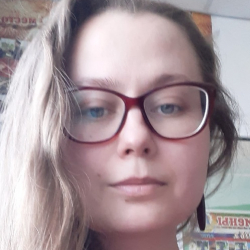


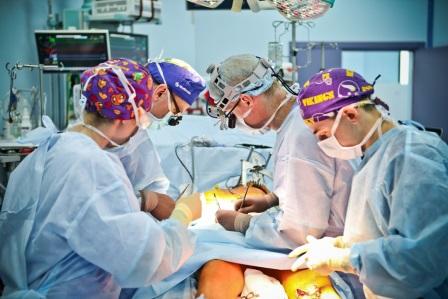
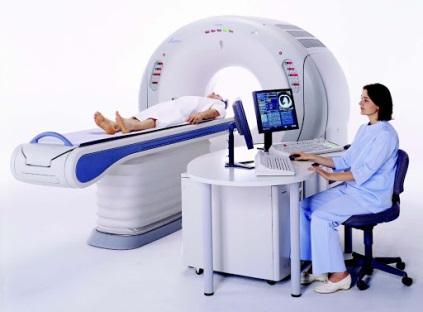
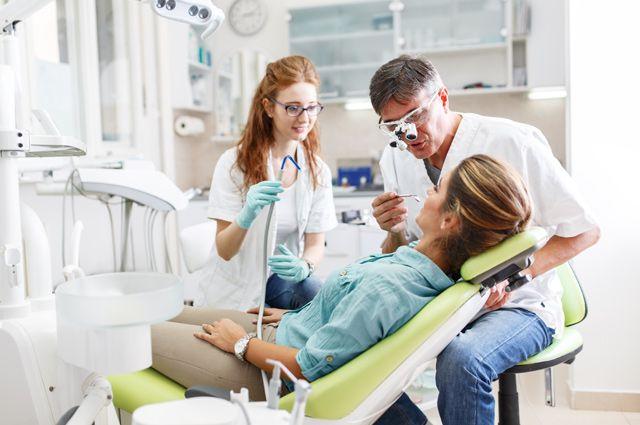
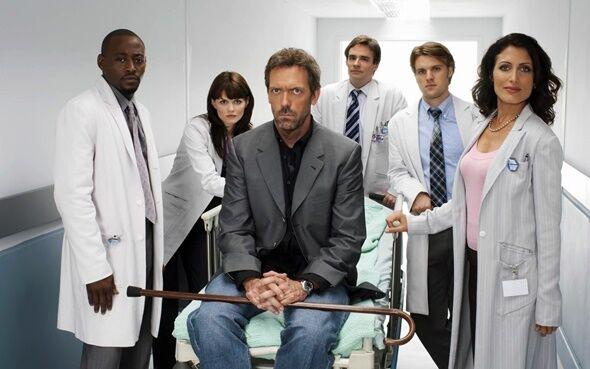
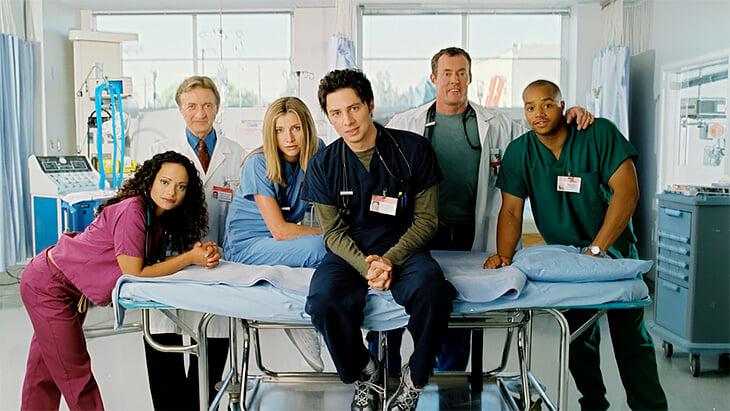
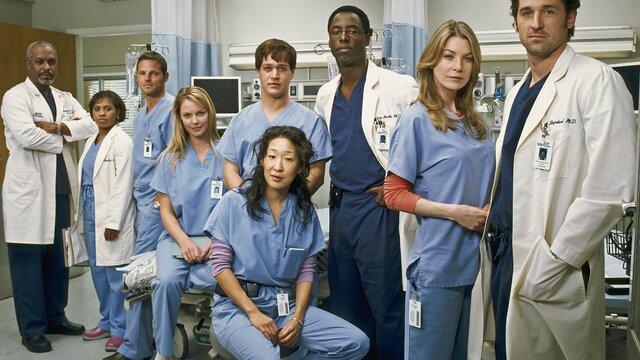
 public healthcare private sector
public healthcare private sector









